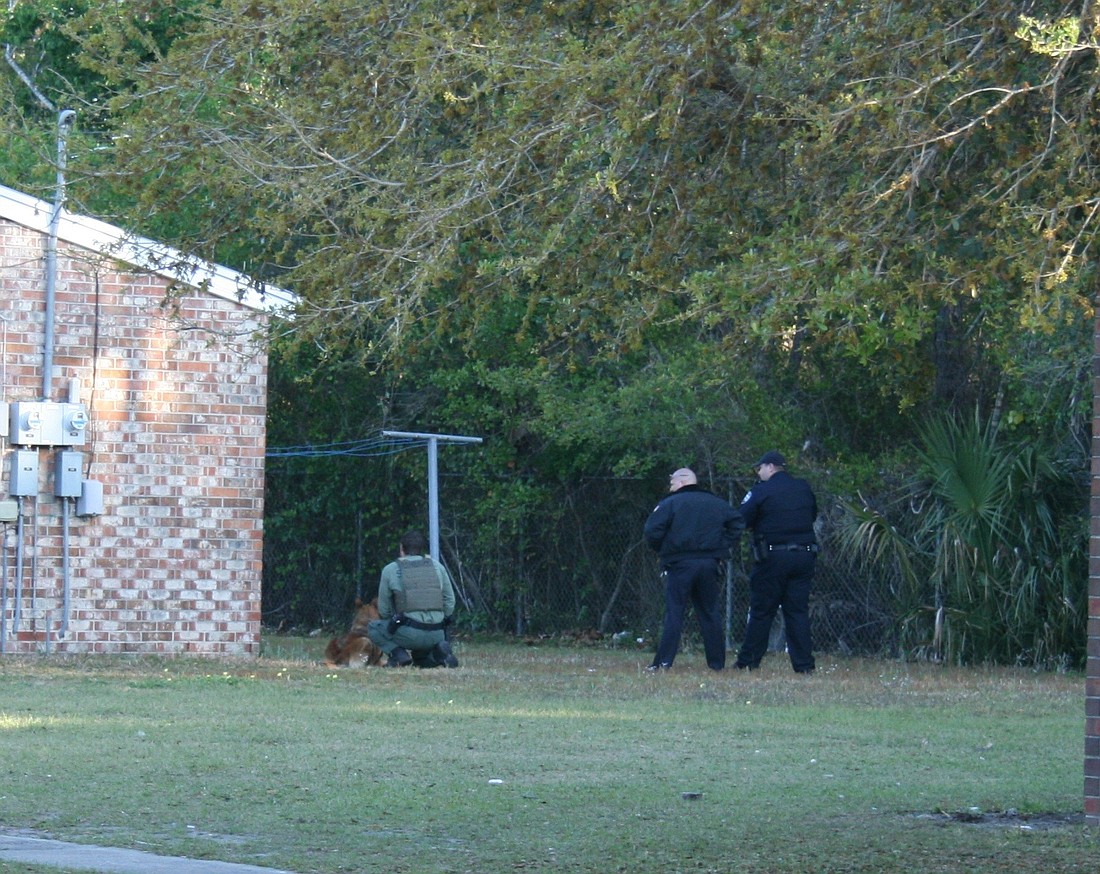- May 2, 2024
-
-
Loading

Loading

They start early, before the sun comes up. Strapping on bullet proof vests and taking long swigs from Sytrofoam coffee cups, they wait for their instructions. Each team gets a folder. Inside, a stack of photos paired with corresponding arrest warrants. Those are their targets.
It’s called Operation: Spring Cleaning. Armed with 27 arrest warrants, detectives and deputies set out in groups to find their men, starting their patrol just as night surrenders to the haze of dawn.
They start early to keep the sweep a secret as long as possible. When Team 1 parks in front of a Palm Coast home, they move quickly. A K-9 unit circles its back, and uniformed officers secure possible exits in case the suspect bolts. They knock on the door.
“Sheriff’s Office,” they say.
Nobody ever answers on the first knock. The pound harder.
“Sheriff’s Office,” they repeat. “We’re here to serve your papers.”
They wait. They knock again. It’s not yet 8 a.m.
Eventually the door opens and a woman emerges. She speaks briefly with the cops on her front porch and then disappears. Moments later a man appears, no older than 25, shirtless and groggy.
His warrant is for sale of cocaine. Detectives have been investigating him for months. Between conversations with confidential sources and surveillance, they’ve been collecting enough evidence to merit an arrest warrant.
The team returns to its cars, ready to hunt again. One down, 26 to go.
This job is one that requires constant thinking. Criminals catch on to their tactics fast, so cops have to change them faster. Most of the sweep is follow-up: Knock on a door, ask questions, get a new lead, knock on another door. The rest is driving around, searching for those on the arrest list. They’re found, surrounded by law enforcement, and handcuffed.
It’s light as the team moves to Bunnell, and neighbors stick their heads out windows as cops surround houses or apartments, their guns drawn, and make arrests.
Four down, 23 to go.
Eventually, word gets out about the sweep. Between that and the unseasonably cold morning, the streets of Bunnell are unusually empty. Drug dealers are caught as they walk from their cars to houses or as they buy milk in the grocery store; otherwise, they’re laying low.
As they canvas the streets looking for one of their targets, the officers wave to everyone they see. They know this neighborhood, and they know the people in it. They know who’s dating whom, who’s left town, who is bouncing from couch to couch. Part of their job — a big part of it — is to be nice to people, to try to be an ally, not an enemy.
Some of today’s heaviest users and dealers were kids once, shooting baskets on the streets, asking detectives and deputies to join as they canvassed the neighborhood. The cops got to know these kids before the drug use, before the arrests, before the desperation of a life burdened by drugs.
Sometimes, seeing the hardened men walking the streets, it’s hard for detectives to see them as anything other than the kids they were just a few years ago. They’re a product of their environment, sometimes; the result of living a life around drugs in a town with little economic opportunity.
But the cops press on. They make their arrests, knowing that many of the users and dealers will post bond and be released within days. They continue their investigations and they keep seeking informants. They watch today’s kids on the streets and stop to say hi as they pass, hoping that someday, perhaps, those kids will escape the cycle.
They find and arrest another. Twelve down, they say. Too many to go.
For information on the sweep, including those arrested, click here.